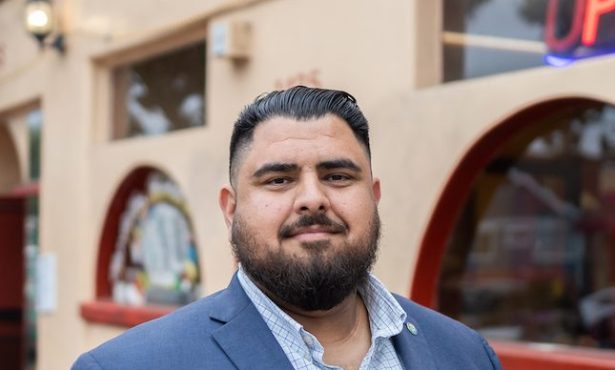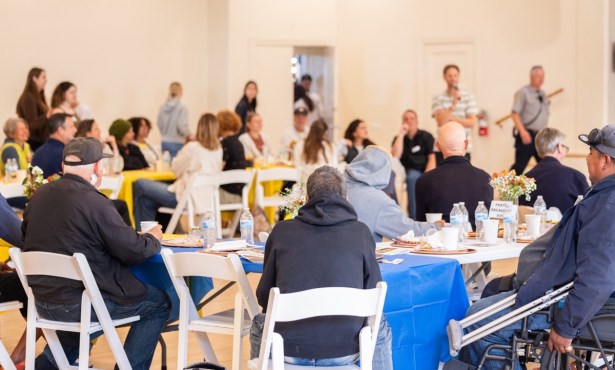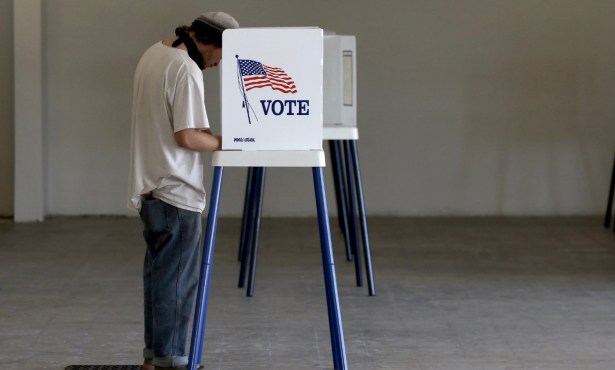Tail Whacking the Dog
Good Will Threatens Council Acrimony; Bag Ban Passed
CURB YOUR BAG: Maybe the lions are not exactly frolicking with the lambs, but the number of across-the-aisle reach-arounds now taking place at the Santa Barbara City Council is beginning to resemble that of a group grope. At the risk of sounding alarmist, there’s a serious risk that things might get done now at City Hall. Although only one seat changed this January — with the addition of former Indy reporter Cathy Murillo — the personal chemistry of the entire council has changed dramatically. It’s not that everyone loves — or even likes — each other. But there’s an element of regard, good humored and even tolerant, that’s new. Given how utterly Washington and Sacramento have surrendered to gridlock and dysfunction, the council’s outbursts of success clearly fall into the man-bites-dog category. Two weeks ago, the council voted unanimously for a sprawling package of road-design changes designed to improve traffic safety on Milpas Street. “Traffic” is what we pretend to talk about in Santa Barbara when we’re really talking about race, class, and wealth; in that context, unanimity ain’t remotely in the cards. Yet it happened. (To the neighborhood activists who still feel bit they didn’t get two traffic signals, take a deep breath, declare victory, and pat yourselves on the back. Without you, none of this would have happened.)

Unanimity almost struck again this week as the council voted 6-to-1 to approve an ordinance banning plastic grocery bags and imposing a 10-cent fee on all paper bags, too. Only Frank Hotchkiss, who regards plastic bags as a triumphant icon of American opulence, voted no. But even Hotchkiss — who wears his political incorrectitude on his sleeve — was barely half-hearted in his opposition. Hotchkiss and Randy Rowse — who likewise has no love for the ban — could easily have done real damage, bottling up the bag ban in the ordinance committee where they hold a majority. But they — recognizing a council majority favored the ban — opted not to be jerks about it, helping, instead, craft a better ordinance. The council bag ban was five very long years in the making, a ridiculous length of time, perhaps, for the so-called birthplace of the environmental movement.
But ironically, thanks to the delays inflicted by the council conservatives, the bag ban passed Tuesday has the potential to pack serious — and not just symbolic — punch when it comes to single-use bags. During the one year conservatives controlled the council, the bag ban appeared DOA. And certainly, there would be no funding approved to pay for the environmental impact report (EIR) required, thanks to the legal interventions of the plastic-bag lobby. Thus stymied, would-be bag-banners — like Councilmember Grant House — were forced to get ingenious. House, it turns out, sits on an obscure joint governmental agency that deals with beach erosion, BEACON. Also sitting on BEACON are representatives from the County of Santa Barbara, the County of Ventura, and eight coastal cities in those two counties. At House’s prodding, BEACON agreed it would pony up the $70,000 needed to pay for a one-size-fits-all EIR, alleviating its member governments of the expense of doing so on their own. In addition, they could all avail themselves of Santa Barbara’s ordinance rather than go through the hell of drafting their own. Whether this plays out as planned has yet to be seen. But with Tuesday’s vote, the potential now exists to have a ban encompassing two coastal counties — combined population 1.2 million — as opposed to merely a Santa Barbara city ban, encompassing a population of just 90,000.
This regional response also addressed Dale Francisco’s objection — delivered in the form of an extended soliloquy at a previous meeting — that plastic-bag regulation should be crafted at the state or national level, and definitely not by local governments acting alone. Dubious that plastic bags constitute quite the scourge its critics say they are, Francisco has also argued there should be regulatory uniformity, not a disjointed hodgepodge of conflicting rules and regulations. Seven years ago, it turns out, the plastic-bag lobby — acting through the state legislature — successfully outlawed the imposition of fees on plastic bags, the single most effective way to discourage the use of single-use bags. This ban — diabolically and insidiously brilliant — was introduced as fine print into a green-sounding bill requiring all supermarkets to provide plastic-bag recycling boxes. After bringing these Machiavellian machinations to light via a series of semi-coy questions, Councilmember Bendy White then exclaimed, “I scratch my head in horror and wonder! What’s the legislature doing?” Because of what the legislature did, 45 local governments throughout California voted to impose total bans on plastic bags instead.
While the council debate on plastic bags has been marked by a startling degree of good faith by the council’s warring tribes, the same can’t be said for our daily newspaper. The plastic-bag industry has underwritten two scientific studies demonstrating that reusable shopping bags — the environmentally preferable alternative to single-use plastic — are breeding grounds for dangerous bacteria. Accordingly, our state Senator Tony Strickland introduced a bill requiring warnings be posted on the side of all reusable bags. Lacking any good horror stories, the bill went down to defeat. Around that time, the News-Press ran a front-page article describing how violently ill members of an Oregon girls’ soccer team became after eating food from a tainted reusable bag. What, the paper demanded, were Santa Barbara public-health officials going to do about this threat? It turns out the bag in question — packed to the brim with snacks — had been parked in a hotel bathroom where one of the soccer players, afflicted with a nasty case of norovirus, spent seven agonizing hours hunched over the toilet bowl. According to an article published by the Journal of Infectious Diseases, an aerosol mist of vomit and fecal material settled over the bag and its contents. If the News-Press mentioned this part, I must have blinked. The moral of the story, I guess, is that if you’re going to wrap dead fish in newspaper, don’t use the News-Press. It’s not safe. As for the lions and lambs at City Hall, it’s nice to see them frolick.



